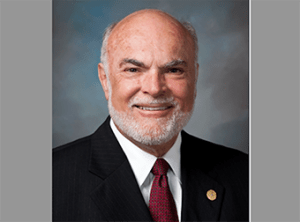OP-ED: Foster care in Texas is poised to build on its successes
Published 5:54 am Wednesday, November 18, 2020
|
Getting your Trinity Audio player ready...
|
Imagine wanting to be foster parents to a child in need and then getting a call that your wish had come true. A 3-month-old-boy needed care and was ready to be brought home, but with a complication: The young child was infected with COVID-19.
Jonathan’s Place, a child-serving organization based in the Dallas area, made that call earlier this year. And the parents on the other end of the line did not hesitate, agreeing to take in the child and provide him with the love and care he needed, even at some risk to themselves.
It was an act of heroism. In the Texas foster care system, it was also rather common. The system that serves 32,000 Texas children in foster care is filled with champions — families who open their homes to foster a brother and sister, nonprofit caseworkers who tirelessly call around looking for apartments for newly turned 18-year-olds who would otherwise be homeless, state employees who work long hours in emotionally draining circumstances, and grandmothers taking in kids whose parents are seeking help for substance abuse or other problems.
Trending
By the time children reach the foster care system, they have often endured severe trauma caused by abuse or neglect. In some instances, the system has failed them. A federal judge in a decade-long lawsuit has repeatedly reprimanded the state for failing to sufficiently reform the that system, pointing to times when children were subjected to abusive and, at times, deadly conditions. These tragic outcomes are unacceptable.
But Texans also need to know this state is full of dedicated, highly trained professionals and organizations committed to children, youth and families. We are working right now to fix problems in the foster care system and build on its many successes.
The Texas Alliance of Child and Family Services (TACFS), which supports child and youth-serving organizations across the state, is enacting a comprehensive plan focused on delivering the best possible care for children and youth. We are providing more frequent and better trainings so organizations can ingrain the best practices in the field into their care. We are working to meet the individual needs of organizations by helping them strengthen their clinical approach, strategic planning and overall improvement plans.
The key to system improvement is investing in services. We hope legislators will add funding for direct care to support the foster families and community organizations taking care of Texas kids — funding for trainings focused on serving kids who have experienced trauma, high quality counselors and therapists, crisis support and innovative treatment models.
The needs are stark. The pandemic has brought conditions that often correlate with increases in abuse, from economic uncertainty to increased substance abuse. The already-challenging work of serving traumatized children and youth has become even more difficult. But these professionals are used to overcoming obstacles. And it is important for Texans to know that the system continues to work. Organizations are open and ready to love and care for children who have suffered abuse or neglect in their families.
Going forward, community-based organizations will work with legislators, agency officials and community partners to address problems, build public confidence and provide the best care possible. We will push for reforms that build on advancements in Texas’ foster care system so we can get it right for every child.
Trending
But we are not starting from scratch. This system is full of heroes, and their resolve to love and care for children is only growing stronger.
Katie Olse is Chief Executive Officer of the Texas Alliance of Child and Family Services, a network of mission-driven organizations serving children and families in Texas’ foster care and child welfare systems.







